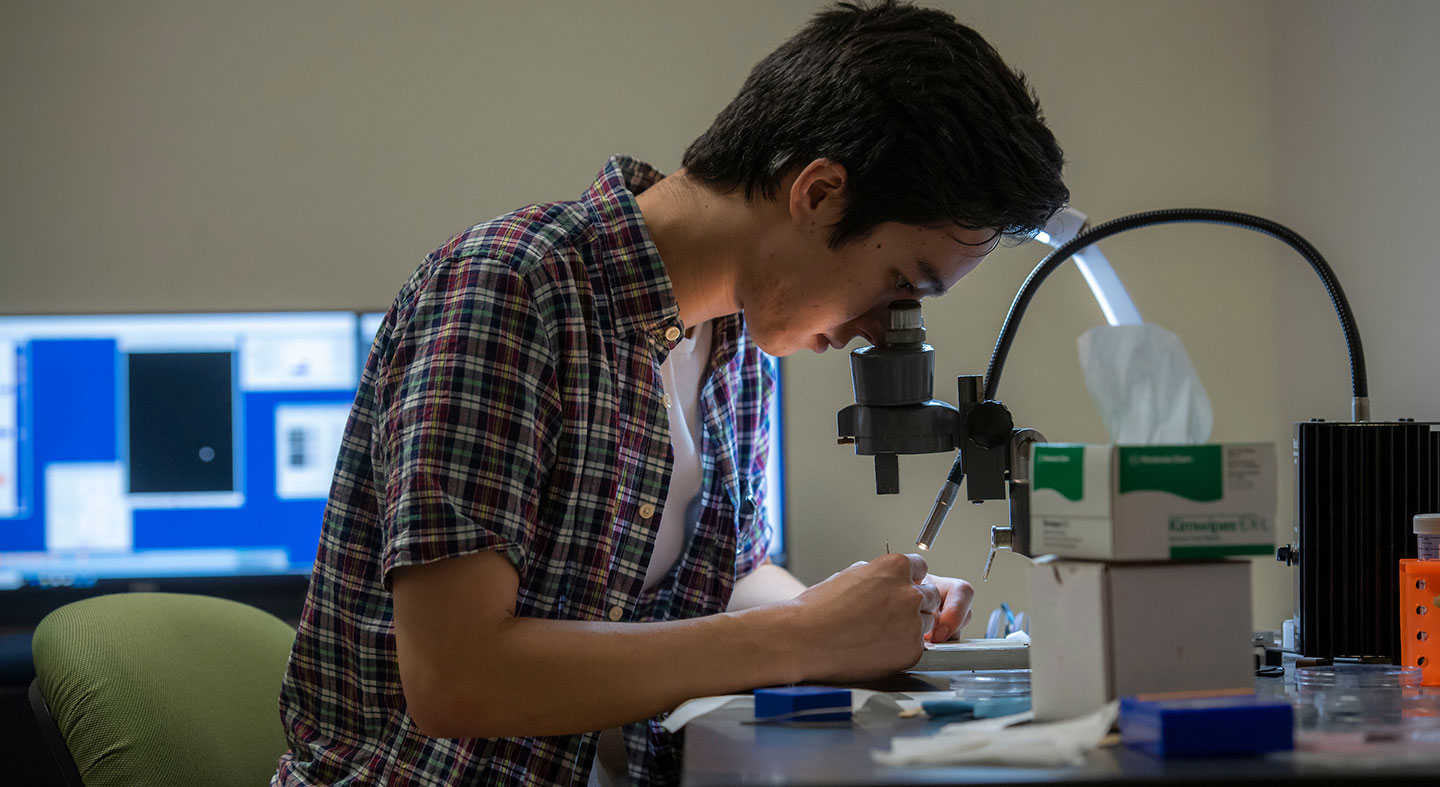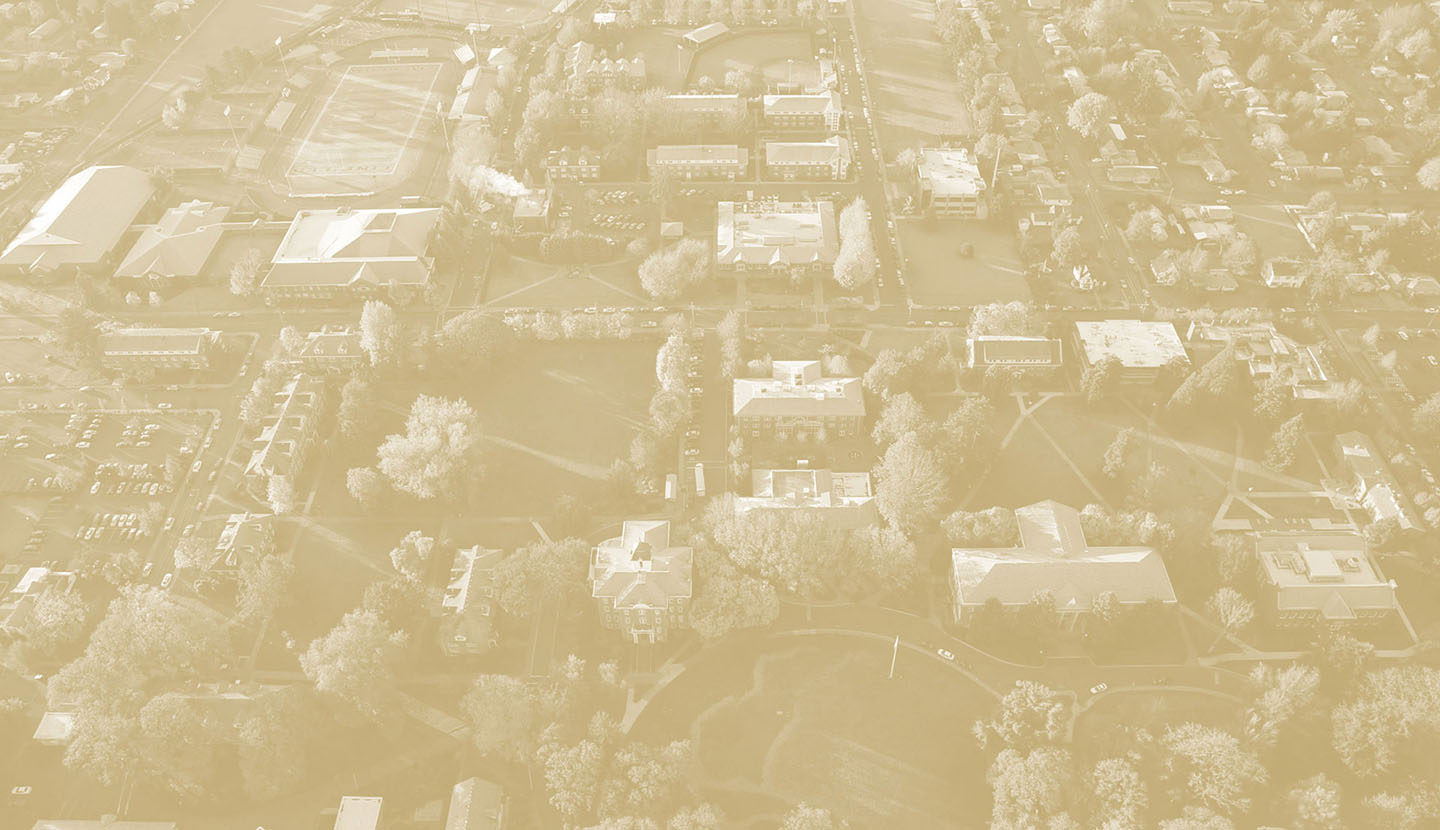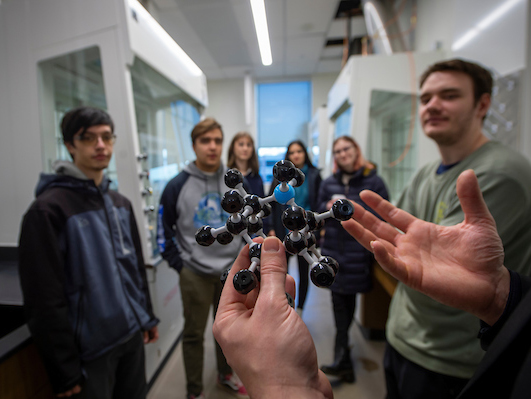
Physics Facilities and Equipment


Linfield's new science complex
The Department of Physics is located in the new Linfield University Science Complex. The brand-new state-of-the-art complex has four labs and a collaborative research space dedicated to physics. There are also study nooks, various classrooms and a lecture hall for integrated learning in all the sciences.
Equipment and resources
Well-equipped machine shop: For metalworking, micromachining, welding, 3D printing.
Materials/sample preparation: Anatech Au/Pd Hummer 6.2 sputter system. Bell jar thermal evaporator system. Optical lithography system (home built). Spin coater (home built). Plasma etch system. Tube furnace.
Electronics test: Probe station; Keithley 2400 source-measure units (3); SRS 830 Lock-in amplifier (3) Tektronix arbitrary function generator (2); Tektronix high-speed digital phosphor oscilloscope (2); SR 570 current pre-amplifier; various other power supplies and oscilloscopes.
Temperature controlled and optical measurement: Optical (visible-IR) and electronic measurement 400K - 77K (liquid Nitrogen temperatures) with Oxford Optistat Cryostat with sapphire windows. Lakeshore 330 temperature controller (2). High-temperature measurement with various ovens and tube furnace. Thorlabs diode laser system; various lenses, mirrors and filters.
Low vacuum measurement: UHV Ion-pumped systems (5) and Turbo pumped systems (2) with multiple optical and electronic access ports and instrumentation.
Microscopy: Asylum/Oxford Instruments Cypher Atomic Force Microscope with fast force mapping mode and with ORCA conductive cantilever holder for electronic measurements. Philips/FEI XL30 FEG Scanning Electron Microscope. PHI 590 SAM Scanning Auger Microprobe. Metallurgical optical microscopes with digital cameras and 100x optics (2). Several inspection microscopes.
Computer labs: Graf Hall houses computer labs in both teaching and research spaces. Software includes SolidWorks, MatLab, Mathematica.
Other on-campus resources: Physics students and faculty also can collaborate with the other science departments at Linfield, and have access to extensive equipment in biology and chemistry departments.
Related nearby resources: Physics faculty collaborate with colleagues at nearby universities including Oregon State University, the University of Oregon and the University of Washington. We can also use instrumentation at the Center for Advanced Materials Characterization in Oregon (CAMCOR) at the University of Oregon in Eugene, about a two-hour drive from Linfield. This includes X-Ray Photoelectron Spectroscopy (XPS), Ultraviolet Photoelectron Spectroscopy (UPS), Time-of-Flight Secondary Ion Mass Spectrometry (ToF-SIMS), Scanning Near-Field Optical Microscopy (SNOM) with Confocal Raman Capabilities, state-of-the-art Transmission Electron Microscopy, Focused Ion Beam and Scanning Electron Microscopy, X-ray diffraction and microfabrication facilities.
